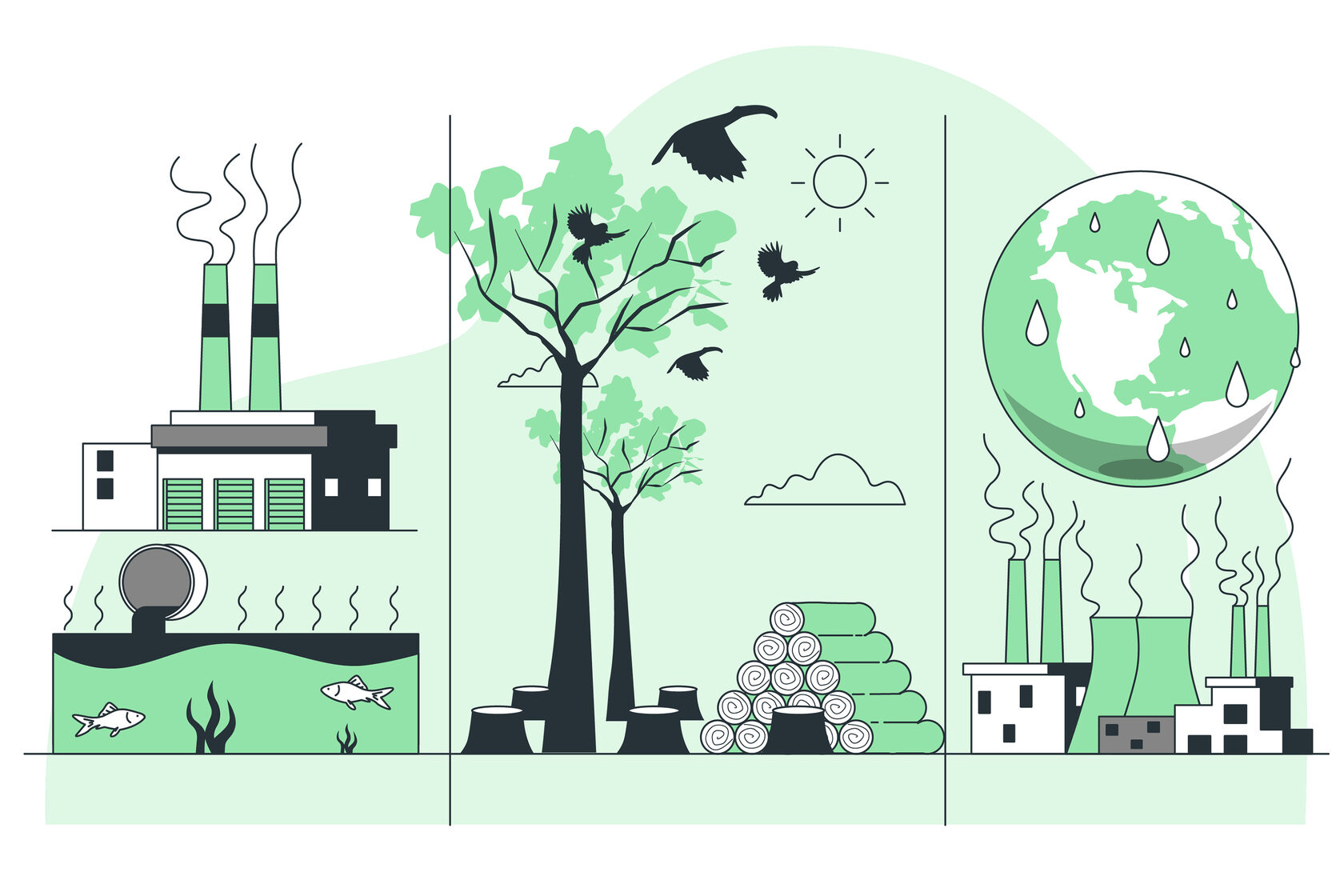You’ve probably heard the term greenwashing by now. Greenwashing refers to the act of making false or misleading claims about the environmental benefits of a product or service. The term originated in the 1980s when companies started to use environmentalism as a marketing tool to increase sales without actually making any significant changes to their production processes. The phenomenon has become more widespread in recent years, and it is a growing concern for consumers who want to make environmentally responsible choices.
Since then, several other concepts related to greenwashing have been defined, including the concept of greenhushing. It’s sort of the opposite of greenwashing, where instead of exaggerating their positive environmental impact, companies are deciding to go quiet and deliberately underreport or hide their environmental credentials and goals. The reasons could be manyfold - they are worried about being labelled as greenwashers, about not doing enough, they don’t think their customers care or they simply want to sound more sustainable without having the quality of data to back it up.
Since then, several other concepts related to greenwashing have been defined, including the concept of greenhushing. It’s sort of the opposite of greenwashing, where instead of exaggerating their positive environmental impact, companies are deciding to go quiet and deliberately underreport or hide their environmental credentials and goals. The reasons could be manyfold - they are worried about being labelled as greenwashers, about not doing enough, they don’t think their customers care or they simply want to sound more sustainable without having the quality of data to back it up.
What’s the big deal with greenwashing?
The problem with greenwashing - as well as greenhushing - is there’s too much talk and not enough walk. Or rather, too much of a pretend walk. Or no talk at all. And that prevents customers, as well as other stakeholders, who are looking to support sustainable businesses, from making an informed decision. It’s misleading the customer and impacts the environment as it encourages investment into unsustainable products.
Businesses continue to be called out, held responsible and often fined, whether it’s a fashion label, McDonald’s paper straws that actually can’t be recycled or Blackrock and HSBC who have suddenly downgraded a number of Article 9 funds - exclusively invested in sustainable assets - to an Article 8 category: funds that promote environmental or social factors but do not need to target a sustainable outcome.
Businesses continue to be called out, held responsible and often fined, whether it’s a fashion label, McDonald’s paper straws that actually can’t be recycled or Blackrock and HSBC who have suddenly downgraded a number of Article 9 funds - exclusively invested in sustainable assets - to an Article 8 category: funds that promote environmental or social factors but do not need to target a sustainable outcome.
A legislative response
One of the reasons why greenwashing and all the other related concepts are so prevalent is that there is no standardised definition of what it means to be environmentally friendly. This lack of regulation makes it easy for companies to make exaggerated or false claims about their products, and it makes it difficult for consumers to distinguish between genuine environmental products and those that are simply being marketed as such.
In response to this problem, the European Union has drafted new legislation aimed at cracking down on greenwashing. The proposed legislation would require companies to provide clear and accurate information about the environmental impact of their products, and it would establish standards for what constitutes an environmentally friendly product. This legislation would help to protect consumers from being misled and would ensure that the products they purchase are actually environmentally friendly.
In response to this problem, the European Union has drafted new legislation aimed at cracking down on greenwashing. The proposed legislation would require companies to provide clear and accurate information about the environmental impact of their products, and it would establish standards for what constitutes an environmentally friendly product. This legislation would help to protect consumers from being misled and would ensure that the products they purchase are actually environmentally friendly.
So what does that mean for you?
There’s no doubt that sustainability communications are getting complex. Saying too much or saying too little can land you in hot waters. It’s time to get strategic. Before you start putting communications ‘out there’, think about the bigger picture for your company.
For your sustainability communications to be credible, relevant and effective, it is crucial that it is informed by and anchored in your overall vision. It needs to address the true material issues and impacts your company has, lay out a clear path to reaching your vision, acknowledge any missed benchmarks and explain what course correction will look like.
And while it might seem like a pain in the neck right now, ESRS disclosures can also help companies and serve as a structured framework through which to measure their commitments and communicate their environmentally responsible activities.
Easier said than done, we know. But if there’s anything you’re not sure about, let us know, we can help.
For your sustainability communications to be credible, relevant and effective, it is crucial that it is informed by and anchored in your overall vision. It needs to address the true material issues and impacts your company has, lay out a clear path to reaching your vision, acknowledge any missed benchmarks and explain what course correction will look like.
And while it might seem like a pain in the neck right now, ESRS disclosures can also help companies and serve as a structured framework through which to measure their commitments and communicate their environmentally responsible activities.
Easier said than done, we know. But if there’s anything you’re not sure about, let us know, we can help.
(Introduction image by storyset on Freepik)


